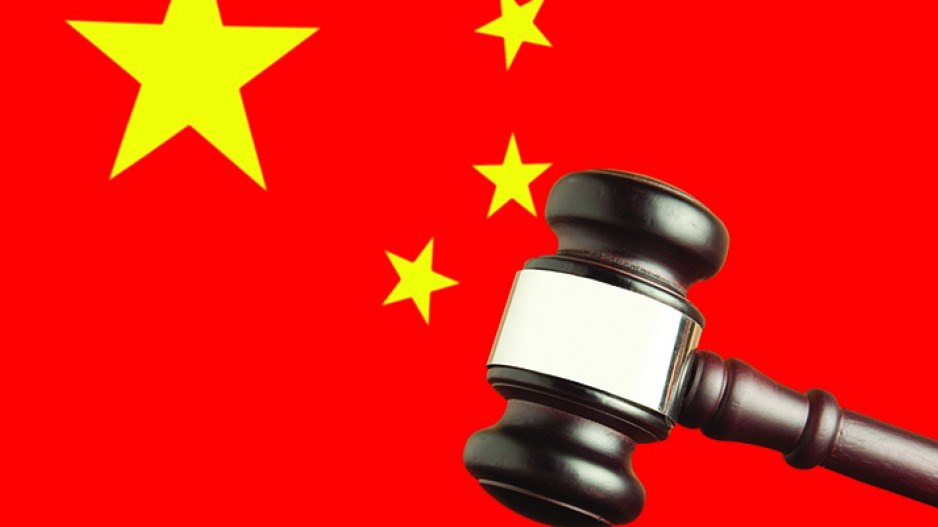The Fourth Plenum of the 18th Central Committee meeting at the end of last month produced a raft of legal reforms aimed at creating a more professional and efficient judiciary. If these reforms are implemented as set out in the official communique, they will add tone and colour to the Canada-China Foreign Investment Promotion and Protection Agreement, which came into force on October 1. The resolution of business disputes in China is not going to suddenly become dependable and predictable. But the process may in the future have more to do with the legal facts rather than the interests of local party officials manipulating events from back rooms.
Even so, the Central Committee reaffirmed that the judicial system is the servant of the Communist Party, not of the people. “Persisting in party leadership is the basic requirement for the socialist rule of law” was the way the communique put it. “Party leadership and the socialist rule of law are identical.”
However, for foreign investors and businesses operating in China, the reforms may bring much-needed advances in certainty and transparency in the judicial process.
The Communist Party has been acutely aware since the years running up to China’s accession to the World Trade Organization in 2001 that its feeble and politically directed legal system is a serious impediment to the country’s economic advancement.
The campaign against corruption by China’s new president and Communist Party leader, Xi Jinping, has given added urgency to this drive. Much of the most socially disruptive and politically dangerous corruption in China stems from collusion between local party officials, business interests and the courts.
A major thrust, therefore, in the Central Committee’s new reforms is to sever the corrupt links between local party leaders and local judges, who themselves are often local party officials without any legal training. New circuit courts are to be created, with judges selected from the legal profession and under the scrutiny of the Supreme People’s Court.
Judges will be subject to much greater accountability for their decisions than in the past. The communique goes on to promise that the public will have greater ability to monitor the judicial system through better access to trial proceedings and to the reasoning behind judicial decisions.
The Central Committee surprised some observers by talking at length about China’s constitution, which on paper contains protections for all the liberal democratic shibboleths of freedom of expression, assembly and religion, but which in practice is a meaningless document. Since he came to power at the end of 2012, President Xi has spoken many times about the importance of China abiding by its constitution, and the Central Committee has continued this theme by saying: “To realize the rule of law, the country should be ruled in line with the Constitution.”
However, this is clearly only in the context of Xi’s comment that “the rule of law is the Communist Party’s basic strategy to govern the country and a fundamental way of managing state affairs.” The purpose of the legal reforms, then, is to create a more competent system of central state management, both of the judicial system and of the wayward local party officials who now manipulate it to their own ends.
The reforms do, however, open the door to debate on constitutionalism and subjecting the sovereign to the rule of law. Many authoritarian regimes have found that door impossible to close once opened.




